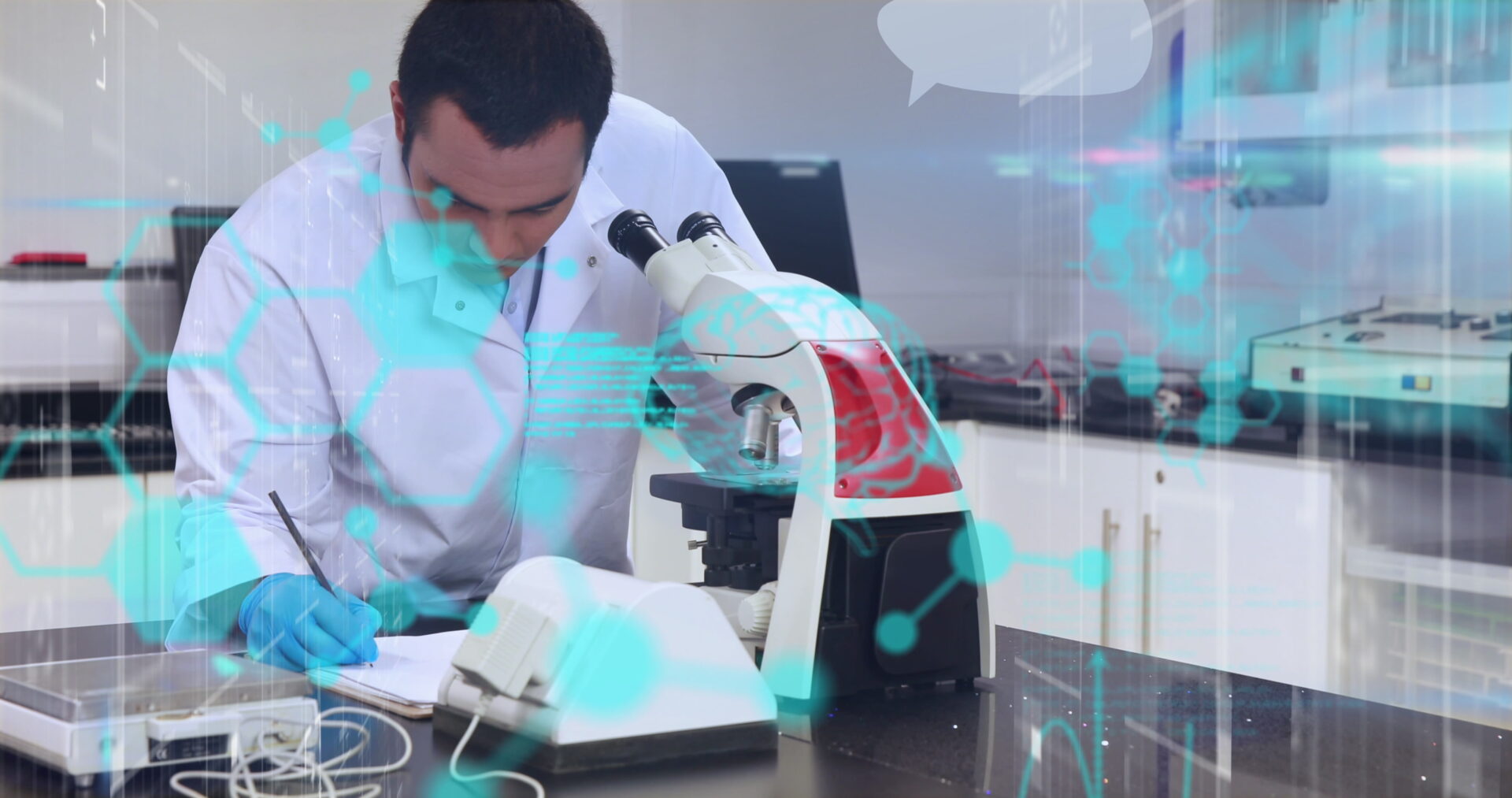The John Walton Muscular Dystrophy Research Centre (JWMDRC) are partners in the Horizon Europe-funded PaLADIn project, which looks to use patient data to better understand neuromuscular diseases. This research could lead to therapies that address what really matters to patients, potentially improving lives around the world.

Asking patients what matters
Neuromuscular diseases, like other rare genetic diseases, can be difficult to treat and diagnose. Clinical trial and therapy development is slow: only about 5% of approximately 8,000 rare diseases currently have a treatment. Developing medicines is challenging due to small patient sizes and variations in how diseases progress.
Increasingly, clinical trials are moving away from simply measuring physical impacts and instead asking how therapies have impacted patients’ daily lives through patient-reported outcome measures (PROMs). This patient-centred data is still not widely available, often sporadic, and difficult to collect as registries don’t always have ways to get data directly from patients.
The PaLaDIn project aims to investigate how data from PROMs can be used to design more effective clinical trials, better understand neuromuscular diseases, and identify what’s important to patients and what therapies can have the best impact. Through the project, data comes clinically via registries or directly from patients who share how they’re feeling about their disease, the outcomes they’ve experienced, and the impact the disease has had on their life.
An innovative new data platform
Project partners include data experts, universities and patient advocacy organisations: Newcastle University, Newcastle University spin-out TREAT-NMD, Amsterdam University Medical Data Centre, Leiden University Medical Centre, FSHD Society, Parent Project and Duchenne UK. Each have a clear role, with work divided into organisation-led work packages and cross-working groups.
The JWMDRC, part of Newcastle University, is a world-leading centre for care and translational research in neuromuscular diseases. They look at the full translational medicine pathway, from discovering genes and potential treatments through to treating and caring for patients. Becca Leary, Senior Project Manager, and her team build national and international networks so that the centre’s research can benefit patients around the world.
Our aspiration is that patients will be at the centre of decision making about their health, their care and research.
Becca Leary, Senior Project Manager
The centre’s role in the project is to develop a user-friendly data collection platform named the Interactium. Patients can log onto the platform and record information about their health and wellbeing, which the centre can link to clinically-focused data for a better understanding of these diseases. To make the platform appealing, the team are exploring wearable devices, gamification, and involving patients in its design.
As this rare data being collected from multiple countries, in various languages, the project uses FAIR (Findable, Accessible, Interoperable and Reusable) Data Principles for better consistency. This approach, along with data visiting (where data is analysed without leaving the patient registry), ensures patient privacy is protected and helps to futureproof the platform.
This data could inform decision-making for patients (e.g. whether to take part in a clinical trial) and for clinicians (e.g. what to recommend to a patient). It could also be a valuable resource for HTA (Health Technology Assessment) decision-making, such as if a country will reimburse a medicine, or if regulators and policymakers deem a medicine to be effective. It could help address inequality in medicine access, as a robust dataset showing a treatment’s benefits could make it more likely to be accepted by HTA bodies.
While the project focuses on neuromuscular diseases, learnings on standardised data collection and effective clinical trials could be applied to other rare diseases. The consortium plan to have an EU workshop around Patient Reported Outcome Measures (PROMs) development next year.
Better connections through Horizon Europe
The PaLaDIn project is funded by Horizon Europe through the Innovative Health Initiative. The application was initiated by TREAT-NMD, with many partners having existing relationships. The project has benefitted not only from funding but also opportunities for networking and events, and from project officers who keep things on track and provide expertise. For patient organisations Parent Project Italy, the programme has meant being able to act as coordinator of this large, multi-partner project.
Working on a Horizon Europe project allows JWMDRC to make international connections with experts in multiple fields. Funding has gone to staff, such as project managers, data experts and researchers, and to travel and meeting costs. The centre has also benefitted from the European Commission Horizon Results Booster programme, where they get specific advice on exploitation and sustainability planning so they can continue to fund the platform beyond the project.
They’re helping us to think about that now and building plans for how we’re going to keep this platform funded in the future. So that’s a real benefit.
Becca Leary, Senior Project Manager
This project will lead to putting patients at the heart of decisions on their health, care and research. With the Interactium platform, the centre can confirm effectiveness of medicines, pharmaceutical companies can find patients for studies, and patients can help design clinical trials that are convenient and meaningful for them. It has potential to make changes not just in neuromuscular diseases but across other fields, too.

